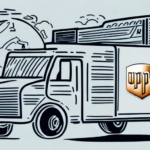It's Always a Good Time to Change Fulfillment Partners
If you're a business owner, you understand the critical role that reliable fulfillment partners play in managing your product shipping and storage needs. However, remaining with the same fulfillment partner for an extended period can lead to stagnation and impede your growth potential. Regularly evaluating your current fulfillment partner and considering a change when necessary can help ensure your business continues to thrive.
Why Sticking with the Same Fulfillment Partner Can Be a Mistake
It can be tempting to continue working with the same fulfillment partner, especially if you've established a long-term relationship. Familiarity with their processes and expectations provides comfort. However, there are several reasons why staying with the same partner may not be the best choice for your business:
- Outgrown Capacity: As your business expands, your current fulfillment partner may struggle to keep up, leading to delays and diminished customer service.
- Incompatible Technology: Partners relying on outdated or incompatible technology can hinder your ability to stay competitive and streamline operations.
- Lack of Expertise: If your fulfillment partner lacks experience in your specific industry, it can result in errors and inefficient processes.
Additionally, a lack of flexibility from your current partner can prevent your business from adapting to changing needs, resulting in missed opportunities and lost revenue. Limited access to new markets due to regional restrictions of your partner can also constrain your business growth. Partnering with a new fulfillment company that offers broader geographical coverage can help you reach more customers and boost sales.
The Benefits of Switching Fulfillment Partners
Changing fulfillment partners can unlock numerous benefits for your business:
- Increased Efficiency: A new partner may employ advanced processes and technology to streamline your warehouse and shipping operations.
- Greater Expertise: A partner with more experience in your industry can reduce errors and enhance customer service.
- Better Scalability: A new partner can provide scalable services that grow with your business, accommodating increased demand seamlessly.
Furthermore, switching partners can lead to significant cost savings. A new fulfillment provider might offer more competitive pricing or negotiate better rates with carriers, ultimately reducing your overall fulfillment expenses.
Additionally, a new fulfillment partner may offer value-added services such as kitting, assembly, or custom packaging. These services can help differentiate your brand and enhance the customer experience, fostering increased customer loyalty and repeat business.
Factors to Consider When Choosing a New Fulfillment Partner
Before transitioning to a new fulfillment partner, it's crucial to evaluate several factors to ensure a smooth and beneficial switch:
- Location: The geographical location of your partner can impact shipping times and costs. Choose a partner strategically located to optimize these factors.
- Technology: Ensure the partner uses modern technology that integrates seamlessly with your current systems for efficient operations.
- Experience: Select a partner with expertise in your industry to ensure they understand your specific needs and can offer tailored services.
- Scalability: Choose a partner capable of growing with your business, providing scalable services to accommodate your expansion.
- Cost: Consider all associated costs, including setup, picking, packing, and shipping fees, to ensure competitive pricing.
Customer service is another critical factor. Partner with a company that offers responsive support, ideally 24/7, and assigns a dedicated account manager to address your needs promptly.
Evaluate the partner's reputation and track record by reviewing testimonials and case studies from other businesses. Additionally, requesting references and speaking directly with existing clients can provide valuable insights into their reliability and service quality.
How to Evaluate Your Current Fulfillment Partner's Performance
Before deciding to switch, thoroughly assess your current fulfillment partner's performance using the following criteria:
- Speed: Are orders fulfilled promptly, meeting your delivery timelines?
- Accuracy: How frequently do errors occur in shipping and order processing?
- Communication: Is communication with your partner consistent and efficient?
- Technology: Does your partner utilize modern technology that integrates with your systems?
- Cost: Are their fees competitive compared to other market options?
Additionally, assess their customer service quality. A fulfillment partner with a dedicated support team can quickly resolve issues, ensuring customer satisfaction and maintaining your business's positive reputation.
Common Signs That It's Time to Change Fulfillment Partners
If you encounter any of the following signs, it may be time to consider switching to a new fulfillment partner:
- Consistently late deliveries
- Poor customer service from your current partner
- Repeated mistakes in shipping and order processing
- Lack of scalability options to support business growth
- Outdated technology hindering order fulfillment
Another indicator is the inability to provide real-time inventory tracking, which can lead to stockouts and order delays. A reliable fulfillment partner should offer accurate, up-to-date inventory information at all times.
If your current partner cannot offer competitive pricing, it may be beneficial to explore other options. As your business grows, negotiating better rates with alternative providers can lead to cost savings and allow you to reinvest in other areas of your business.
Steps to Take When Transitioning to a New Fulfillment Partner
To ensure a seamless transition to a new fulfillment partner, follow these essential steps:
- Choose Your New Partner Carefully: Conduct thorough research to find a partner that aligns with your business needs and goals.
- Communicate Clearly: Maintain open communication with both your current and new partners to ensure a smooth handover.
- Create a Detailed Transition Plan: Outline each step of the transition process, including contingency plans for potential issues.
- Prepare Your Team: Provide adequate training and resources to your staff to adapt to the new partner's processes and systems.
- Monitor the Transition: Keep a close eye on the transition to promptly address any challenges that may arise.
The Risks of Delaying a Change in Fulfillment Partners
Postponing the decision to change fulfillment partners can expose your business to several risks, including:
- Decreased Efficiency and Productivity: Inefficient fulfillment processes can slow down your operations.
- Poor Customer Service: Capacity limitations can negatively impact your ability to serve customers effectively.
- Slower Growth Potential: Inflexible fulfillment solutions can restrict your ability to scale and expand.
- Increased Errors and Costs: Outdated technology can lead to more mistakes and higher operational costs.
How a New Fulfillment Partner Can Improve Your Business Operations
Partnering with a new fulfillment provider can offer several advantages to enhance your business operations:
- Improved Efficiency and Productivity: Advanced technologies and optimized processes can streamline your operations.
- Better Scalability and Flexibility: Scalable services ensure your fulfillment needs are met as your business grows.
- Tailored Services: Customized solutions can address your specific product requirements more effectively.
- Greater Industry Expertise: Specialized knowledge can lead to better handling of your products and customer interactions.
- Enhanced Technology Integration: Seamless integration with your existing systems can improve data accuracy and operational flow.
Cost-Benefit Analysis of Switching Fulfillment Partners
Conducting a cost-benefit analysis is essential when considering a new fulfillment partner to ensure a positive Return on Investment (ROI). Here's how to approach it:
- Compare Costs: Analyze the costs of the new partner versus your current one, including setup, picking, packing, and shipping fees.
- Factor in Benefits: Consider the advantages offered by the new partner, such as efficiency improvements, expertise, and scalability.
- Evaluate Market Rates: Research competitors' rates to ensure you're getting a competitive deal and can maintain your market position.
Best Practices for Selecting and Onboarding a New Fulfillment Partner
When selecting a new fulfillment partner, adhere to these best practices to ensure a successful partnership:
- Research Potential Partners: Gather comprehensive information on their processes, technology, and cost structures.
- Check References and Reviews: Evaluate testimonials and speak with existing clients to gauge their reliability and service quality.
- Prepare a Detailed RFP: Create a Request for Proposal that outlines your specific needs and ask potential partners to provide detailed responses.
- Thorough Onboarding: Ensure your new partner receives adequate training and has sufficient lead time to integrate seamlessly with your operations.
How to Ensure a Smooth Transition from Old to New Fulfillment Partner
To facilitate a smooth transition to a new fulfillment partner, implement the following strategies:
- Clear Communication: Outline expectations and potential contingencies with both your current and new partners.
- Establish Key Performance Indicators (KPIs): Track progress and measure success using predefined metrics.
- Provide Training and Resources: Equip your staff with the necessary knowledge and tools to adapt to the new partner's systems.
- Monitor the Transition: Continuously oversee the transition process and address any issues promptly to prevent disruptions.
Case Studies: Successful Switches to New Fulfillment Partners
Switching to a new fulfillment partner can be challenging, but many businesses have successfully navigated the transition. Here are some examples:
- Company A: Transitioned to a new partner to manage increased order volumes during peak seasons. The new partner efficiently handled the surge, resulting in higher customer satisfaction rates.
- Company B: Switched to a partner with superior technology integration, leading to enhanced operational efficiency and reduced errors.
- Company C: Partnered with a fulfillment provider specializing in their industry, which decreased customer service complaints and boosted overall efficiency.
The Importance of Communication with Your New and Old Fulfillment Partners
Effective communication is critical when switching fulfillment partners. Follow these guidelines to ensure clarity and alignment:
- Clear Communication: Ensure both your current and new partners understand the transition plan and their respective roles.
- Outline Expectations: Define what is expected from each partner and establish contingencies for potential issues or delays.
- Prepare Both Partners: Make sure both fulfillment providers are aware of the transition timeline and are prepared to collaborate effectively.
- Regular Updates: Maintain ongoing communication with your new partner to build a strong working relationship from the outset.
What You Need To Do To Find A Reliable And Trustworthy Fulfillment Company For Your Business
When searching for a new fulfillment partner, consider the following steps to ensure reliability and trustworthiness:
- Industry Experience: Select a partner with experience in your specific industry to ensure they understand your unique requirements.
- Technology Integration: Choose a partner that offers up-to-date technology that can seamlessly integrate with your existing systems.
- Comprehensive Cost Analysis: Account for all costs, including setup, picking, packing, and shipping fees, to avoid unexpected expenses.
- References and Reviews: Assess feedback from other businesses to gauge the partner's reliability and service quality.
- Detailed RFP: Develop a thorough Request for Proposal to obtain specific and detailed information from potential partners.
Conclusion
Selecting the right fulfillment partner is essential for your business's success. While maintaining a long-term relationship with a fulfillment partner can be beneficial, it's important to periodically evaluate their performance and suitability for your evolving needs. By carefully considering the factors outlined in this guide and following best practices for transitioning, you can ensure a smooth switch to a new fulfillment partner that supports your business growth and enhances operational efficiency.




















